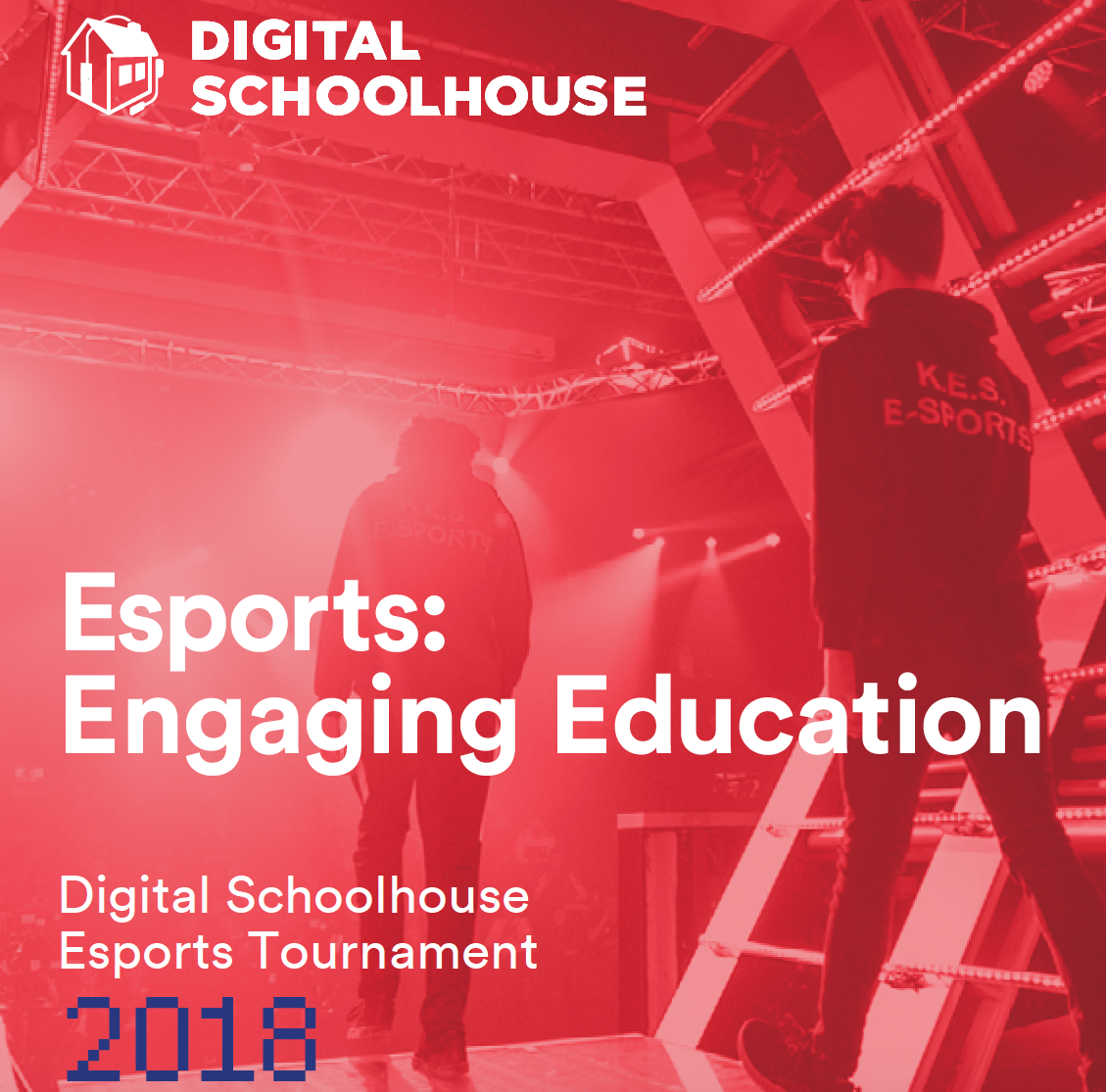Esports is a fast-growing and evolving industry, engaging millions of children across the globe both in competitive play and as a new form of entertainment, with the industry expected to surpass $2bn revenue by 2020. It is an inclusive form of entertainment, presenting opportunities for all regardless of age, physical abilities or gender. Digital Schoolhouse’s ‘Esports: Engaging Education report‘ examines if participating in esports tournaments can help to not just engage students with developing their digital and broader soft skills, but if it also enables them to aspire to career pathways that they may not have otherwise considered.
The danger of a digital skills gap is very clear, hindering the growth of a variety of industries. The UK urgently needs more children to be inspired by technology and digital creativity. One of the initiatives aimed at providing this inspiration is the Digital Schoolhouse esports tournament, which has just completed its second year. The 2017 – 2018 tournament saw 2222 students from 20 schools across the UK take part as either a player or as part of the school’s event management team. The aim of the tournament was to provide an immersive careers education experience, enabling students to realise the breadth of career opportunities available to them. Students aged 12 – 18 years participated not only as players but were also recruited to manage the tournament within their schools taking on valid industry roles such as event management, production, tournament administration, community management and on-screen talent.
An integral part of the tournament was to examine its potential impact on the participants. Digital Schoolhouse worked with Staffordshire University to develop a study that collected data using a number of methods, including questionnaires, case studies, discussion groups and informal feedback. The study focused on two key research questions:
- Does participating in esports create positive behavioural change in young players that will translate into behaviour modification in other aspects of their lives?
- Does participating in esports influence the career path and STEM (science, technology, engineering and maths) interests of young players?
The top five key findings were:
- Transferable skills increased with Communication (74%) and Team Working (80%) coming top
- 67% of respondents found that friendship bonds grew over the course of the tournament (and 94% of friendships were maintained or grew during the competition)
- Over 80% said that the competition had increased their interest in participating in other team sports
- Just under 90% said it had increased their interest in a career in the video games industry
- Over 90% said it had increased their interest in computers and computing, but only 40% said it had increased their interest in studying it as a subject
Click here to download the full ‘Esports: Engaging Education report’.
If you would benefit from the advice of an esports agency, Strive Sponsorship can help. Contact us for esports sponsorship, commercial, content, operations, investment and communications consultancy services.














